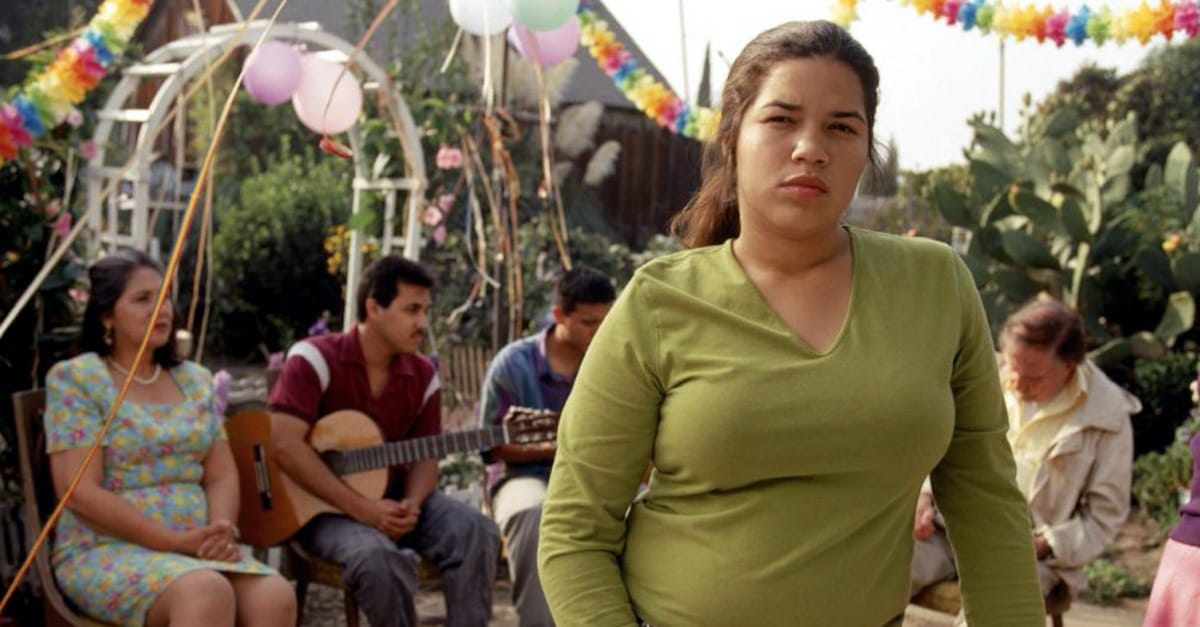
Patricia Cardoso’s Status As the First Latina in the National Film Registry Is a Bittersweet Achievement for the Entertainment Industry
Many young girls, especially Latinas, have a vivid memory of where they were and what they were doing the first time they saw the film “Real Women Have Curves” on their television screens. The 2002 dramedy film centers around Ana García, an 18-year-old Mexican-American girl living in East Los Angeles who struggles to follow her dreams in the face of the economic uncertainty.
The film touches on hot-button issues like body image, discrimination, mother-daughter relationships, emotional abuse, and sexual liberation. For many Latinas who grew up watching a predominantly white media landscape, seeing America Ferrera in “Real Women Have Curves” was the first time they saw a character like themselves being reflected back to them on their TV screens.
In December, the Library of Congress announced that the movie was being added to the United States National Film Registry for its status as a “culturally, historically, or aesthetically significant” motion picture.
The movie’s addition is notable because it marks the first time a Latina director, Patricia Cardoso, has been added to the archive since its creation in 1988. “The film is a remarkable snapshot of the community and working toward getting ahead as part of the American Dream,” said Steve Leggett, liaison specialist and program coordinator with the Library of Congress. “Plus, the talent and personality of America Ferrera in this film is irresistible and impossible to resist.”
At the Library of Congress’ announcement, Cardoso spoke on the bittersweet nature of her addition to this exclusive group of filmmakers. “I am thankful, it’s an honor and I don’t take it for granted. For me, being one of the first Latinx woman directors is very important,” Cardoso said. “But I would wish I wasn’t the first one. I wish there were many, many more before me and certainly hope there are many more coming behind me.”
“Curves” has long garnered both popular and critical acclaim, winning the Sundance Film Festival Audience Award when it premiered in 2002 and subsequently being voted “one of the most influential movies of the 2000s” by Entertainment Weekly.
The movie was notable for how it broke many of the traditional Hollywood conventions that the industry had, for years, relied on to tell stories. The film’s protagonist was not a white man, she wasn’t conventionally beautiful by societal standards, and she didn’t live a glamorous or exciting life.
“Curves” was celebrated for its accurate illustration of the complexities of mother-daughter relationships–especially involving teenage girls. It’s layered and affectionate depiction of East Los Angeles–and especially the Chicano community–was a spectacle audiences had never seen before.
In an industry in which women make up only 4 percent of directors are women, less than 1 percent of which are Latinas, Cardoso remains one of the few Latina filmmakers that have been recognized by mainstream critics.
America Ferrera took to Instagram to explain the impact of the movie not only on her life, but the lives of countless other Latinos. “I was 17 years old when this once-in-a-lifetime opportunity came. This movie gave me a chance and gave me a career,” she said in an emotional Instagram post. “Because Latinos in this industry are busting their asses to create opportunity for one another, things are beginning to improve slowly, but there are still far too few opportunities for the talent in our community to shine.”
“Our people deserve opportunities more often than once-in-a-lifetime,” Ferrera continued. “My deepest gratitude to every Latinx creative & executive in this industry busting down doors, and to our allies who understand the value of our stories. Thank you @librarycongress for this acknowledgment of a beautiful film.”
Naturally, fans of the film (many of which are Latina) took to Twitter to express their love of the movie and their gratitude for its recognition.
It’s true that important art doesn’t have to be acknowledged by large institutions to be culturally significant, but nonetheless, it is always satisfying to have one’s work recognized by others.
This Latina explained perfectly why the movie was important to her:
Not only was this movie ground-breaking in its day, but it continues to be today.
This fan couldn’t help but quote one of the movie’s most memorable scenes:
God, we love this part. We’ve all been there before.
This observant movie-goer had an interesting point about the movie’s impact on future filmmakers.
We can definitely see the similarities between “Curves” and “Lady Bird”, another coming-of-age movie.
This person got candid about how this movie changed her life:
The power of on-screen representation can’t be overstated.




